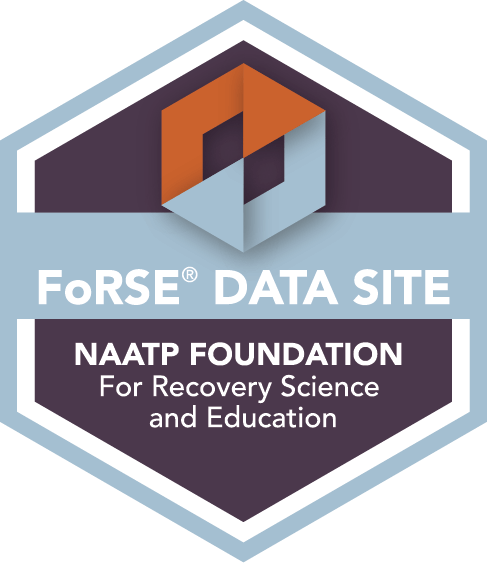Dialectical behavior therapy (DBT) is part of a comprehensive treatment program that blends cognitive-behavioral techniques with mindfulness to help people manage emotions, improve relationships, and change harmful behaviors. For those struggling with addiction, DBT offers practical tools to cope with cravings, handle stress in healthier ways, and build a more stable foundation for long-term recovery. By focusing on both acceptance and change, DBT gives individuals the skills they need to break free from substance use and create a life that feels worth living.
At Northern Illinois Recovery Center in Crystal Lake, Illinois, we provide dialectical behavior therapy (DBT) as part of our comprehensive addiction treatment programs. DBT is an evidence-based approach that helps individuals struggling with substance use disorders develop healthier ways to cope with stress, regulate emotions, and manage triggers that can lead to relapse.
By combining mindfulness, behavioral strategies, and practical skills training, dialectical behavior therapy has empowered our clients to replace harmful patterns with positive habits and create a more stable, fulfilling life in recovery.

The term “dialectical” expresses the idea of bringing opposite concepts together. In DBT, this pertains to terms like “change” and “acceptance.” During DBT therapy sessions, a major focus is on developing our clients’ acceptance and the skills taught for problem-solving. In conjunction with other methods of treatment, this type of therapy can be extremely useful in recovery and beyond.
Goals and Principles of DBT
Dialectical behavior therapy for substance use disorders helps clients identify thoughts, emotions, and behaviors that are holding them back from reaching their full potential. In addition, the processes of DBT encourage clients to accept their current circumstances while moving forward. Dialectical behavior therapy covers different facets of addiction treatment and aims to do the following:
- Identify and control your disorders and behaviors
- Learn to express your emotions and talk about your past/current struggles
- Learn how to resolve issues smoothly and maintain a stable life
- Repair relationships to improve your behavior and communication skills
DBT encourages individuals to live in the present moment. During sessions, patients will learn how to break down their emotions, stress, and grief in a healthier manner. Many people who are enrolled in DBT have heightened emotional responses. Proper treatment can help the patient with emotional regulation and prevent engaging in addictive behaviors.
- Reduce harmful behaviors: Decrease substance use and other behaviors that put the individual at risk.
- Increase emotional regulation: Teach skills to manage intense emotions without turning to drugs or alcohol.
- Improve coping strategies: Build healthy ways to handle stress, cravings, and triggers.
- Enhance relationships: Develop communication and interpersonal skills to maintain supportive connections.
- Promote long-term recovery: Encourage a balanced, meaningful life rooted in stability and self-awareness.
- Acceptance and change: Balance accepting current struggles while working to change harmful behaviors.
- Mindfulness: Stay present and aware of thoughts, feelings, and urges without reacting impulsively.
- Distress tolerance: Manage crises and emotional pain without using substances.
- Emotion regulation: Recognize, understand, and adjust intense emotions effectively.
- Interpersonal effectiveness: Communicate needs and set boundaries while maintaining healthy relationships.
DBT begins with “pre-treatment” sessions with your therapist. Your therapist asks you about your background and your goals for therapy. You will collaborate in developing a treatment plan.
What to Expect During DBT for Substance Abuse?
DBT often uses acronyms to make skills easier to remember and apply. Group sessions function like classes, teaching skills such as mindfulness, emotion regulation, and communication tools. For example, “DEAR MAN” teaches effective communication by guiding patients to Describe, Express, Assert, Reinforce, stay Mindful, Appear confident, and Negotiate. Another tool, “STOP,” supports distress tolerance by reminding patients to Stop, Take a step back, Observe, and Proceed mindfully. These are just two of many DBT skills designed to help people manage emotions and improve daily life, paving the way for successful recovery.
Patients practice skills through homework and real-life application, with phone coaching available for support in stressful moments. DBT programs often last six months or more, and therapists work in consultation teams to ensure effective, compassionate care.
Throughout your DBT treatment, you will develop valuable skills that teach you how to manage your stress levels, accept what is around you, and enter into mindfulness more fully, which is essential for relapse prevention. You will also discover how this step-by-step process within addiction treatment can help you take the necessary small steps to make significant changes and challenge negative consequences.
You can participate in both individual therapy and group therapy settings. We also offer therapy over the phone with your DBT therapist. We can help you track your progress on your recovery journey so you can see a direct connection between the therapy and your growth.
The Stages of Dialectical Behavior Therapy
- Stage 1: This stage mainly focuses on stabilizing the patient at an inpatient treatment Mental health issues are challenging and complicated to deal with. During the first stage, we focus on topics ranging from suicidal thoughts to other dangerous behaviors. Our therapists help guide their patients to a healthier and safer mental state.
- Stage 2: Once we ensure the client is stable, we begin working through traumatic experiences. This stage is essential because it helps people learn to deal with certain emotions instead of burying them. Our addiction and mental health counselors are experienced in dealing with this behavior and can have overwhelmingly positive impacts on their patients.
- Stage 3: To maintain stability, in stage three, we help clients set goals. Goal setting helps people stay on track while being a confidence booster upon reaching their goals.
- Stage 4: Stage four represents a period in which our clients are advancing their lives to complete recovery. During this stage, the client actively finds fulfillment within their life. They are aware of the difficulties they have faced, but continue to work on and develop their DBT skills with guidance.


Modules of DBT for Substance Abuse
Staying in control of emotions can be difficult during challenging times. The emotional regulation aspect of DBT helps clients learn how powerful emotions can be. Emotions can lead to positive or negative effects. DBT is important for people who have trouble controlling mood swings or urges since it is an outlet that promotes healthy coping skills and problem-solving.
A large portion of individuals in addiction treatment have relationships that impact them negatively. This is known as interpersonal effectiveness. Healthy relationships set the foundation for healthy lifestyles. Learning about interpersonal effectiveness helps our clients understand the importance of positive relationships, resulting in positive emotional experiences.
Mindfulness is similar to acceptance. Being mindful means that you are willing and able to accept how things are within the present moment, an area where DBT focuses heavily. Once you can accept yourself, your past decisions, and your ability to make healthy decisions, it will be easier to avoid relapse.
If mindfulness were easy, mental health conditions would not be so prevalent. Since most people join treatment at a distressing time, it can be especially difficult to practice mindfulness. DBT for substance abuse can help individuals accept their stress, as opposed to committing habitual, unhealthy behaviors, and can be complemented by medication-assisted treatment (MAT). DBT techniques provide our clients with the tools they need to have long-term recovery.
Am I a Candidate for DBT for Substance Abuse?
Therapists who assist support groups have special training in the provision of a safe environment. When deciding whether dialectical behavior therapy can be helpful, it should begin with a conversation with an experienced mental health care professional who can determine what your symptoms are. When you are unsure about whether you’re a candidate for DBT, always talk to your doctor.

Dialectical Behavior Therapy at Northern Illinois Recovery Center
- Cognitive behavioral therapy
- Individual therapy and group therapy
- Experiential therapy program
- Aftercare program
- Dual diagnosis treatment
When combined with other forms of therapy, DBT offers an effective solution for treating mood disorders, depression, anxiety disorders, and substance abuse.
Through dialectical behavior therapy, you can also face problems like suicidal thoughts or tendencies, emotional imbalance, impulse behavior, and self-destruction issues that lead to further mental disorders.
Evidence-Based Therapy
DBT has also helped individuals in the following ways:
- Reduces mental anguish in several disorders
- Reduces self-harming practices such as cutting
- Retains individuals who seek the treatment time and again
- Reduces symptoms of personality disorders and psychological disorders
- Treats drug addiction and alcohol addiction
- Helps you develop greater abilities for coping with your problems
To get the most from dialectical behavior therapy, patients should show up to treatment ready to participate both physically and mentally. Skipping sessions can hurt the overall outcome of treatment.
Treatment progress depends on the treatment center, as well as the patient. Working on practical skills outside of treatment can be extremely beneficial. DBT teaches individuals to prevent negative thought patterns, recognize triggers, and develop strong interpersonal skills.
However, what is taught in therapy will need to be applied in real-world situations. The lessons learned within therapy and other programs can make a significant difference and be immediately transferred to day-to-day life. Participation in group sessions and individual sessions can almost immediately help the client make positive shifts in their life.





